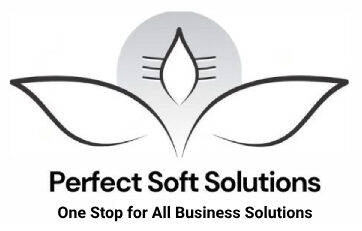Blog 4
DeFi Simplified: Empowering MSMEs with Accessible Credit
Access to finance is still a major issue affecting Micro, Small, and Medium Enterprises (MSMEs) in general. In fact, according to a report of the World Bank, it has been established that about 40% of the MSMEs in India still face substantial problems in acquiring funds needed for expansion. Conventional banking institutions generally fail to respond to the peculiar needs of such enterprises by charging them with lengthy credit checkups, extended procedures for sanction, and inappropriate financial instruments.
Is there a better way to provide MSMEs with the financial support they need while bypassing these barriers?
Enter Decentralized Finance (DeFi)
Decentralized Finance, or DeFi, is transforming the financial landscape as blockchain technology empowers a transparent, accessible, and decentralized ecosystem. MSMEs can now access finance without cumbersome paperwork, strict credit checks, or collateral requirements. With DeFi, businesses can efficiently manage cash flow, participate in international markets, and reduce financial risk, thus opening the door to previously unattained growth.
What is DeFi?
DeFi represents a decentralized monetary system built around blockchain that exists outside the banking system. Not as traditional finance where institutions, for instance, banks govern access and further facilitate the happening of the activity, DeFi is actually on peer-to-peer networks with auto-executed smart contracts.
Smart contracts are computer programs that live on a blockchain. They run automatically, with zero human intervention. They are as transparent and efficient as a vending machine that dispenses a product only when all the conditions are met. Smart contracts execute transactions if the predefined criteria are met.
DeFi vs. Traditional Finance
The traditional financial systems rely on intermediaries such as banks, brokers, and payment processors. These entities play a central role in managing transactions, record-keeping, and providing essential services. However, these centralized entities are often inefficient and costly, with systemic risks at times.
DeFi provides a decentralized network in which there is a distributed ledger (blockchain) that keeps records. In this system, anonymity, transparency, and global reach characterize the process since it can reach anyone with an internet connection. Removing intermediaries saves on transaction costs while enhancing security and enabling financial inclusion.
How DeFi Works
DeFi applications are based on blockchain platforms such as Ethereum and Polygon. These platforms keep tamper-proof records of all transactions. The said blockchain networks provide seamless financial services through the following:
Stablecoins: Digital currencies that are designed to maintain a stable value, often pegged to fiat currencies like the U.S. dollar.
Exchanges: Platforms for trading digital assets without transferring custody of funds.
Credit Solutions: Lending and borrowing without traditional credit checks or collateral requirements.
Derivatives: Financial instruments for managing market risks, such as futures and options.
Insurance: Decentralized insurance solutions offering protection against specific risks.
Asset Management: Tools to optimize investment portfolios based on individual goals.
Benefits of DeFi for MSMEs
Accessibility: Open to all; no credit checks or extensive documentation required.
Transparency: Blockchain technology ensures all transactions are verifiable and secure.
Cost-Effectiveness: Eliminates intermediaries, reducing transaction costs significantly.
Global Reach: Enables businesses to engage in international markets without barriers.
Efficiency: Automated processes enable faster access to financial services.
Innovation: Constantly evolving ecosystem offering cutting-edge financial solutions.
Challenges and Solutions
Complexity: DeFi is not very friendly to a newcomer. Easy-to-use training and tools help bridge the gap.
Security Risks: The open-source code is susceptible to hacks. Using trusted platforms and best practices makes it safe.
Regulatory Uncertainty: To operate with confidence in the ecosystem, it is essential to know the compliance requirements.
How DeFi Can Change MSMEs
DeFi will change MSMEs by allowing them to:
Access financing without traditional banking hurdles.
Saves costs through peer-to-peer transaction and decentralized sites.
Effective use of cash flows in DeFi lending and borrowing.
Low regulatory hurdles towards global markets expansion.
Simplified cross-border payment, thus better trade opportunities
Examples such as BitPesa in Africa present the possibility in DeFi. BitPesa has reduced up to 75% of transaction costs for cross-border payments while ensuring businesses thrive across borders.
Ideal Soft Solutions: Leading MSMEs into the Era of DeFi
At Perfect Soft Solutions, we enable MSMEs to utilize the potential of DeFi. Whether it’s setting up an immovably secured digital wallet, navigating regulatory frameworks, or accessing tailored financial solutions, our expertise ensures that your business stays ahead of the curve.
Steps for MSMEs to Leverage DeFi in 2024:
Establish a Digital Wallet: Begin with an immovably secured wallet to interact with DeFi platforms.
Educate Yourself: Understand ideas and tools of DeFi.
Partner with Experts: Seek the expertise of DeFi specialists for more targeted advice.
Start Small: Get the ball rolling with low-value transactions to build your confidence.
Stay Updated: Keep track of industry developments and changes in regulation.
Decentralized Finance is the future of financial services, and Perfect Soft Solutions is here to guide you every step of the way. By embracing DeFi, MSMEs can unlock unprecedented growth opportunities and redefine their financial journey. Let’s shape the future together!
